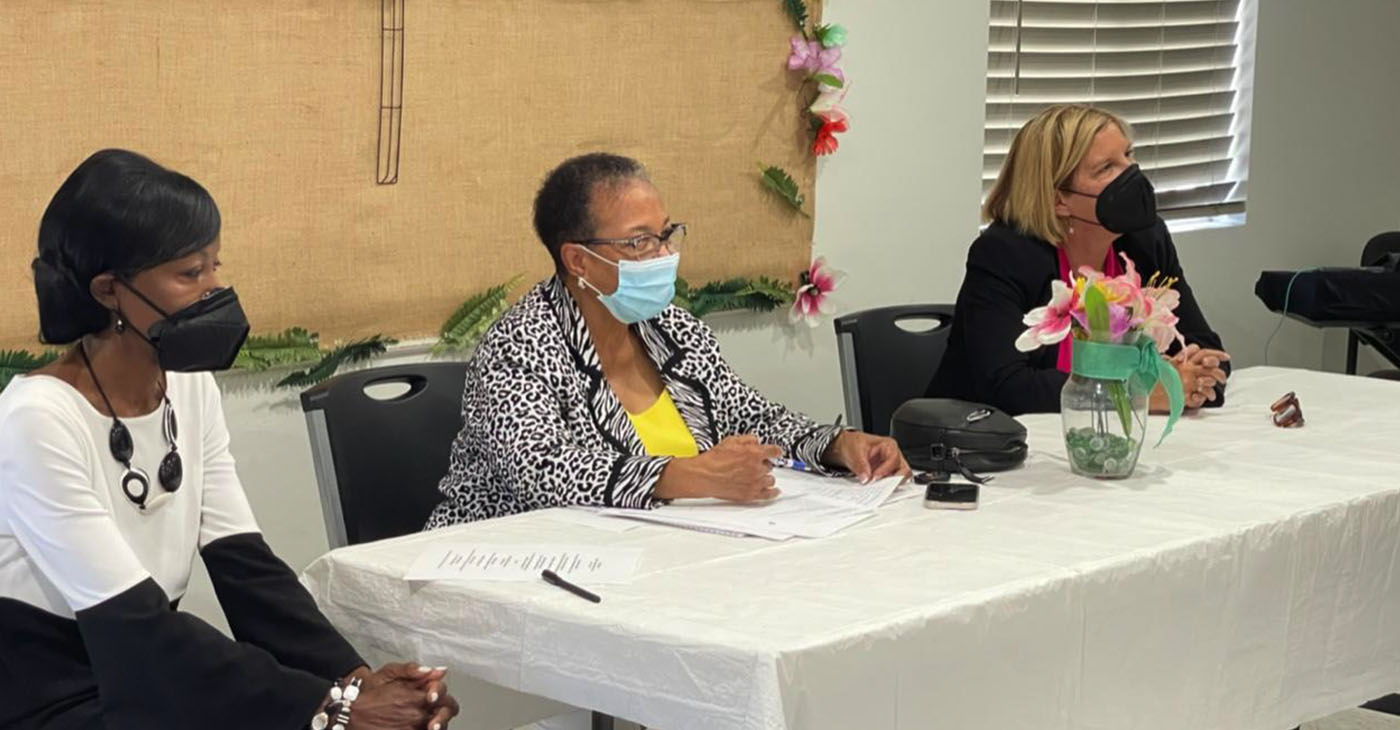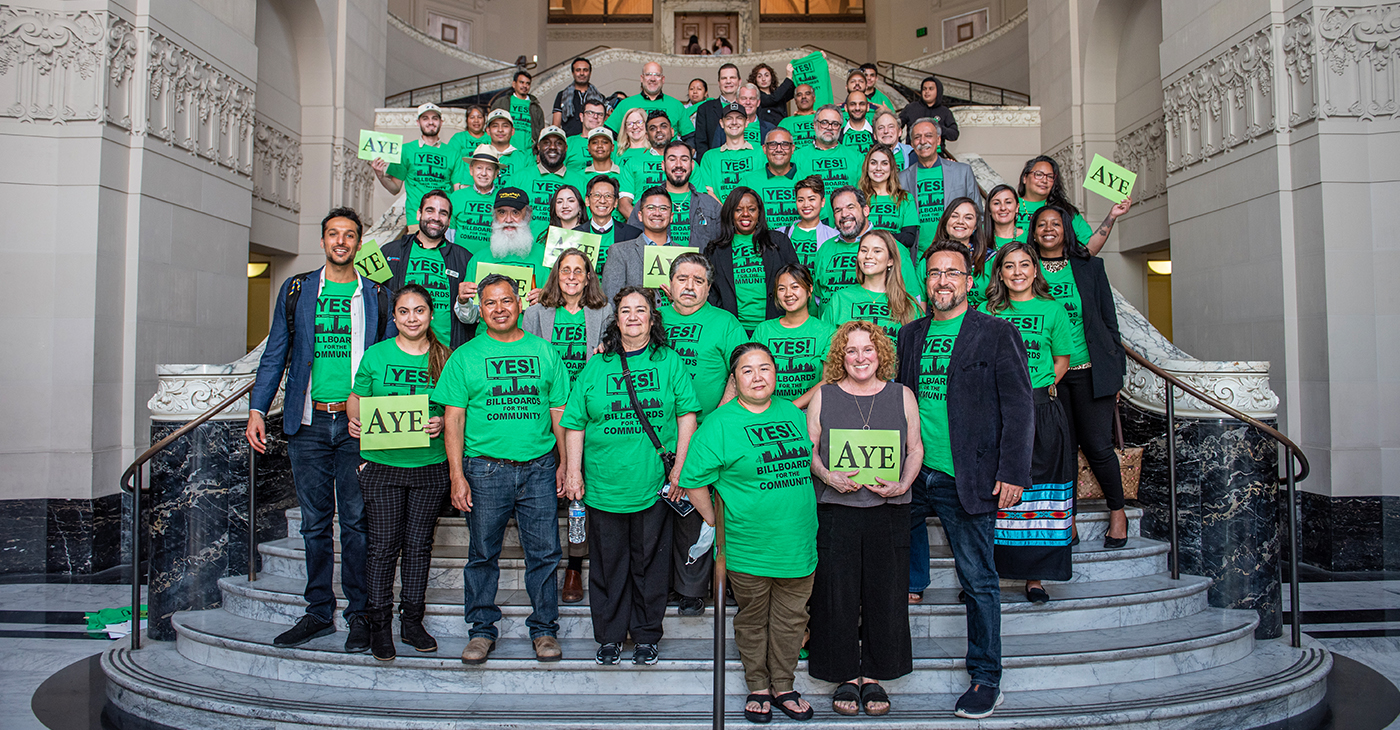Activism
The California Department of Aging: There Is Help for Elder Californians
Part of the statewide plan for addressing the Black elder community is to partner with ethnic media organizations to spread the word about the resources that are available to Californians in the advanced phase of their aging process. DeMarois, much like Nevins, acknowledged that a large portion of the state’s plan to reach Black elders is through local churches.

By Aldon Thomas Stiles California Black Media
The St. Paul African Methodist Episcopal Church’s Commission on Social Action held a community meeting on aging last Thursday in San Bernardino with representatives from the California Department of Aging (CDA) and the Bernardino County’s Department of Aging and Adult Services.
Held in the sanctuary, the discussion featured state representatives and Social Action Commission members led by former Assemblymember and Commission Chair Cheryl Brown, who represented the 47th Assembly District in San Bernardino County from 2012 to 2016.
Brown spoke with community members and leaders from San Bernardino and Riverside counties about programs and resources available for elderly Californians and the caregivers who look after them.
“The state has set aside millions of dollars to help older Californians have a better quality of life through the Master Plan for Aging. And caregiving is fourth of the five goals established in the state’s Master Plan for Aging,” Brown told California Black Media.
CDA Director Susan DeMarois also attended the meeting.
CDA administers programs that serve older adults, adults with disabilities, family caregivers, and residents in long-term care facilities throughout the state. It has a $450 million budget and according to its Strategic Plan, CDA’s first objective is to advance Gov. Gavin Newsom’s California Master Plan for Aging.
Newsom’s master plan was introduced as an executive order in the summer of 2019. Conceptualized as a five-point plan, its framework encompasses housing, health, equity, caregiving “that works” and affording aging.
According to DeMarois each point of the governor’s master plan has its own budget and will be implemented over the next eight years.
During the meeting — titled “Lunch, Listen and Learn” — community members expressed their concerns and suggestions specifically regarding how to take care of elderly Black people in the Inland Empire. A major theme of the discussion was ensuring familiar (traditional) modes and channels of communications that were being employed to reach Black elders.
Sharon Nevins, director of San Bernardino County Department of Aging and Adult Services, spoke about ways in which the county has been involved in addressing those concerns.
“We have staff out there in the community, putting information in hands,” said Nevins.
Nevins emphasized the significance of Black churches and their unique influence on Black elders in California.
“We definitely reach out to the churches. We’ve always done that,” Nevins said.
DeMarois hailed San Bernardino as a model for the rest of the state because the city has been “meeting the needs of the whole person.”
According to the Center for Disease Control (CDC), California was tied with Hawaii in 2019 for the states with the nation’s highest life expectancy at an average of about 81 years.
Riverside County has a life expectancy of 80.3 years and San Bernardino County has a lower expectancy at 78.8 years.
Part of the statewide plan for addressing the Black elder community is to partner with ethnic media organizations to spread the word about the resources that are available to Californians in the advanced phase of their aging process.
DeMarois, much like Nevins, acknowledged that a large portion of the state’s plan to reach Black elders is through local churches.
“It’s multi-pronged,” said DeMarois. “We know in the Black community faith is a proven path.”
One of the organizations mentioned during the community meeting – an organization that DeMarois claims she took note of – is the Inland Empire Pastor’s Association.
DeMarois expressed the need for the state and local agencies to implement “coordinated strategies” to approach challenges facing the state’s aging population.
Activism
Oakland Post: Week of July 24 – 30, 2024
The printed Weekly Edition of the Oakland Post: Week of July 24 – 30, 2024

To enlarge your view of this issue, use the slider, magnifying glass icon or full page icon in the lower right corner of the browser window. ![]()
Activism
Oakland Post: Week of July 17 -23, 2024
The printed Weekly Edition of the Oakland Post: Week of July 17 -23, 2024

To enlarge your view of this issue, use the slider, magnifying glass icon or full page icon in the lower right corner of the browser window. ![]()
Activism
Community Celebrates Historic Oakland Billboard Agreements
We, the Oakland Billboard Economic Development Coalition, which includes Oakland’s six leading community health clinics, all ethnic chambers of commerce, and top community-based economic development organizations – celebrate the historic billboard agreements approved last year by the Oakland City Council. We have fought for this opportunity against the billboard monopoly, against Clear Channel, for five years. The agreements approved by Council set the bar for community benefits – nearly $70 Million over their lifetime, more than 23 times the total paid by all previous Clear Channel relocation agreements in Oakland combined.

Grand Jury Report Incorrect – Council & Community Benefit
We, the Oakland Billboard Economic Development Coalition, which includes Oakland’s six leading community health clinics, all ethnic chambers of commerce, and top community-based economic development organizations – celebrate the historic billboard agreements approved last year by the Oakland City Council. We have fought for this opportunity against the billboard monopoly, against Clear Channel, for five years. The agreements approved by Council set the bar for community benefits – nearly $70 Million over their lifetime, more than 23 times the total paid by all previous Clear Channel relocation agreements in Oakland combined.
Unfortunately, a recent flawed Grand Jury report got it wrong, so we feel compelled to correct the record:
- Regarding the claim that the decision was made hastily, the report itself belies that claim. The process was five years in the making, with two and a half years from the first City Council hearing to the final vote. Along the way, as the report describes, there were multiple Planning Commission hearings, public stakeholder outreach meetings, a Council Committee meeting, and then a vote by the full Council. Not only was this not hasty, it had far more scrutiny than any of the previous relocation agreements approved by the City with Clear Channel, all of which provide 1/23 of the benefits of the Becker/OFI agreements approved by the Council.
- More importantly, the agreements will actually bring millions to the City and community, nearly $70M to be exact, 23 times the previous Clear Channel relocation agreements combined. They certainly will not cost the city money, especially since nothing would have been on the table at all if our Coalition had not been fighting for it. Right before the decisive City Council Committee hearing, in the final weeks before the full Council vote, there was a hastily submitted last-minute “proposal” by Clear Channel that was debunked as based on non-legal and non-economically viable sites, and relying entirely on the endorsement of a consultant that boasts Clear Channel as their biggest client and whose decisions map to Clear Channel’s monopolistic interests all over the country. Some City staff believed these unrealistic numbers based on false premises, and, since they only interviewed City staff, the Grand Jury report reiterated this misinformation, but it was just part of Clear Channel’s tried and true monopolistic practices of seeking to derail agreements that actually set the new standard for billboard community benefits. Furthermore, our proposals are not mutually exclusive – if Clear Channel’s proposal was real, why had they not brought it forward previously? Why have they not brought it forward since? Because it was not a real proposal – it was nothing but smoke and mirrors, as the Clear Channel’s former Vice President stated publicly at Council.
Speaking on behalf of the community health clinics that are the primary beneficiaries of the billboard funding, La Clinica de la Raza CEO Jane Garcia, states: “In this case, the City Council did the right thing – listening to the community that fought for five years to create this opportunity that is offering the City and community more than twenty times what previous billboard relocation agreements have offered.”
Oakland Billboard Economic Development Coalition
| Native American Health Center | La Clínica de la Raza | West Oakland Health Center |
| Asian Health Services | Oakland LGBTQ Center | Roots Community Health Center |
| The Unity Council | Black Cultural Zone | Visit Oakland |
| Oakland African American Chamber of Commerce | Oakland Chinatown Chamber of Commerce | Oakland Vietnamese Chamber of Commerce |
| Oakland Latino Chamber of Commerce | Building Trades of Alameda County | (partial list) |
-

 Arts and Culture3 weeks ago
Arts and Culture3 weeks agoRooted in Tradition: The Intricate History of Black Hair Braiding
-

 Bay Area4 weeks ago
Bay Area4 weeks ago“I Will Not Be Bullied,” Says Oakland Mayor Sheng Thao
-

 Bay Area2 weeks ago
Bay Area2 weeks agoPG&E Increases Rates While Bay Area Households Are Struggling to Stay Afloat
-

 Business3 weeks ago
Business3 weeks agoGov Newsom: Raising Fast Food Minimum Wage to $20 Pays Off as Jobs Multiply in Industry
-

 Activism4 weeks ago
Activism4 weeks agoOpponents of Mayor Sheng Thao Are Calling on Her to Resign Following FBI Raid
-

 Community1 week ago
Community1 week agoHundreds Come to Jehovah’s Witnesses’ Assembly Hall for Three-Day Program of ‘Good News’ in Fremont
-

 Bay Area2 weeks ago
Bay Area2 weeks agoJuneteenth Mass Shooting Suspect Charge with Multiple Counts of Felony Assault by Alameda County DA Pamela Price
-

 Activism4 weeks ago
Activism4 weeks agoOakland Coliseum Sale to AASEG: A Model for Community Development and Inclusion

















































